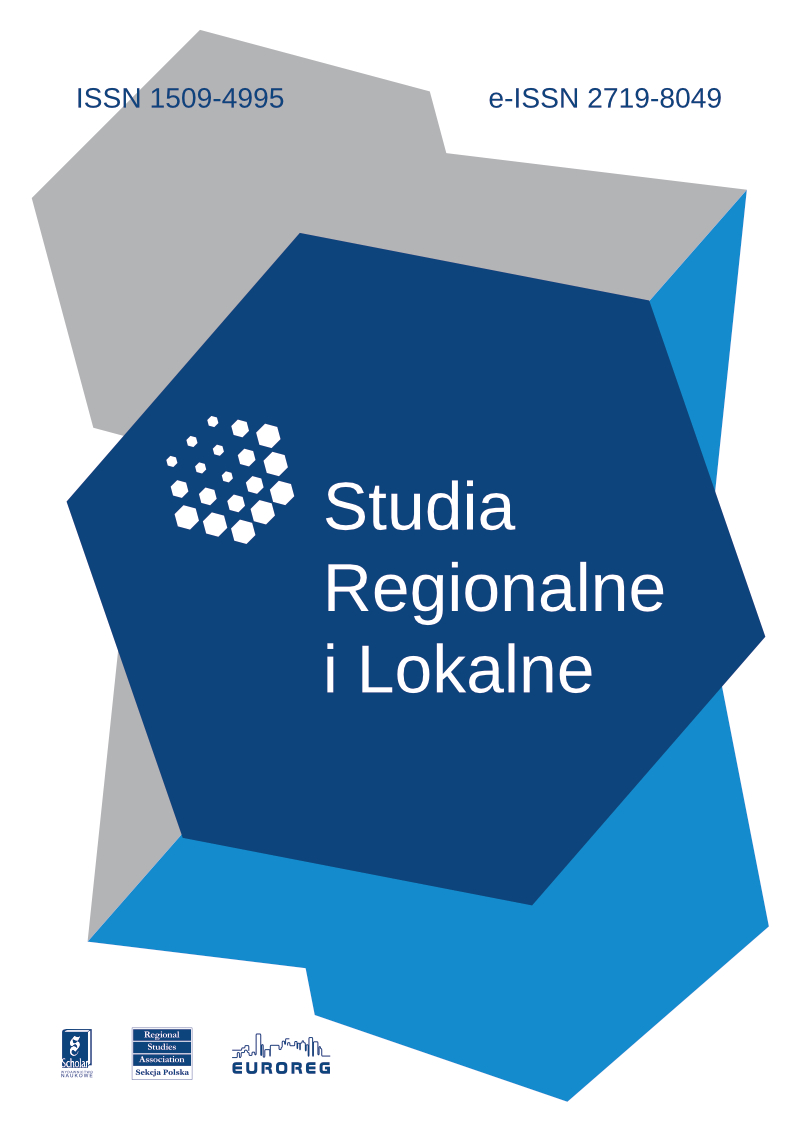Published in
3(17)/2004

- Stanisław FurmanPoland in the European Space – An Urban Perspective[more]
- Anna Gąsior-Niemiec„O nowym modelu polityki regionalnej” – głos w dyskusji na kanwie artykułu profesora A. Kuklińskiego (Studia Regionalne i Lokalne 2003, nr 4)[more]
- Mikołaj HerbstHuman Capital Formation in Poland. Where Does Educational Quality Come From?[more]
- Bohdan JałowieckiJ.T. Hryniewicz, 2004, Polityczny i kulturowy kontekst rozwoju gospodarczego, Warszawa: Wydawnictwo Naukowe Scholar, 371 s. (recenzja)[more]
- Piotr KorcelliThe Replacement Migration and the Dilemmas of the Migration Policy[more]
- Katarzyna KrokChanges in the Level of Pollution in the Areas of Environmental Risk in Poland[more]
- Antoni KuklińskiGlobal space – European space – Polish Space. The Challenges of the XXI Century (A Discussion Paper)[more]
- Andrés Rodrígues-Pose, Ugo FratesiBetween Development and Social Policies: The Impact of European Structural Funds in Objective 1 Regions[more]
- Iwona SaganB. Jałowiecki, M.S. Szczepański, 2002, Miasto i przestrzeń w perspektywie socjologicznej, Warszawa: Wydawnictwo Naukowe SCHOLAR, 444 s. (recenzja)[more]
- Jacek WasilewskiTerritorial Support for Poland’s Accession to the European Union[more]
- Adam WojciechowskiThe Extension of Relationship and Importance of Mutual Support in Social Relations System[more]


